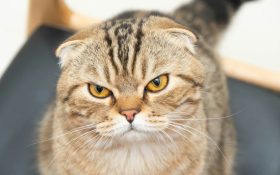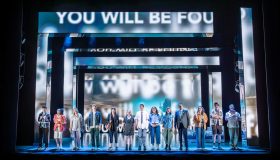Jimmy Wales sighs. The co-founder of online reference hub Wikipedia has arrived in Australia to take part in a series of public seminars on education and knowledge. He’s excited to be here, but he’s dismayed at a headline he’s just seen in one of our broadsheets on the evils of MySpace and that wicked World Wide Web.
The article, spawned by the tragic suicide of two young girls who happened to have a MySpace account, expresses some valid concerns about the dangers facing our kids, and a melancholy that they were forced to articulate their woes online, rather than to family. But Wales feels the piece, and others like it, do us all a disservice by scapegoating an easy target. The Internet, after all, is still the new kid on the block, and easy pickins’ for the big, bad senior class, (read, old media, socio-political establishment) who are starting to realise their tenure at the top of the totem pole is finite.
“It’s unhelpful,” he says gently, but you can sense the frustration. “The usual litany of complaints about what’s going on online.”
Wales has every reason to feel they missed the point. His lifework is living proof that technology is a force for positive change – and that’s not just geek spin.
Wikipedia’s ascendancy and reach is epic (you can read about its genesis in detail here). Officially born in 2001, it’s the fastest growing reference resource in the world, with the total number of English-language entries clocking in at over 1.6 million. In its pioneering collaborative model, anyone can write or edit an entry (called ‘articles’). Everyone’s knowledge is valued and it’s up to the Wikipedia community of readers and writers to ‘course correct’ if errors appear. The result is the closest mankind has come to the ‘hive mind’ science fiction authors long ago dreamed up – and that’s perhaps the most fantastical aspect of all.
Superficially, the setup appears doomed to Lord of the Flies chaos. Indeed, every now and then someone will screw up an entry with the wrong information, or deliberate vandalism. But these bumps along the hypertext road are few, and short-lived.
So what prevents renegade users editing each other into oblivion, and Wikipedia from becoming the world’s most unreliable resource?
“It’s really about having a good community, having certain values within that community, and making sure the community has the tools they need to monitor the quality and maintain it over time,” says Wales. “Those are the real keys to what makes it work.”
A little trust goes along way too. “A lot of our core values have been based on trusting each other, respecting each other, and generating a culture where people want to be trustworthy – where that’s valuable to have in that culture. There are lots of ways to start an Internet community with a certain social culture that goes off the rails. We’ve worked hard to avoid that.”
This manifest goodwill is perplexing to pundits who can’t grasp that the Internet can be a Pandora’s Box of possibility, as much as it can a haven for Today Tonight style predators. But it’s at the heart of Wales’ work, and open source philosophy in general. He’s become famous for his stated goal of giving “every single person on the planet free access to the sum of all human knowledge”, and technology is a fundamental part of that equation.
Still, some social scrutinisers feel that although technological innovations are connecting us in ever expanding and magical ways, it’s in an ironically isolated manner – that we’re becoming individual nodes plugged into a data hub, rather than true, interactive networks.
Let’s look at some numbers. A study on ‘active participation’ rates for YouTube, Flickr and Wikipedia announced at the recent Web 2.0 expo in San Francisco suggests people are keen to embrace social software, and beyond that, there’s something about Wiki.
It found, perhaps unsurprisingly, that overall growth for participatory sites was up 686% in the past year. Yet when the participation rates for these three sites stacked up against one another, guess who came out on top (hint, this one is a surprise).
YouTube, with its massive pool of user content, surely? Flickr – millions of people have uploaded a photo or two? Nope. A mere .16% of visits to YouTube and .2% of visits to Flickr were classed as participation visits, whereas Wikipedia came in at 4.59%, significantly ahead of its Web 2.0 peers. This means more people took the time to edit articles on Wikipedia than uploaded a picture to Flickr, or a video to YouTube – and infers that Web 2.0 isn’t perhaps the vapid, popularity driven matrix some would have you believe.
“It’s really interesting, and I don’t know quite what to make of it yet,” confesses Wales.
“Those absolute numbers struck me as much higher than I would have anticipated from looking at our server logs in the past, but I haven’t yet asked our developers to do a study to see if we agree with those numbers. On the other hand, I often think there is a certain amount of apples and oranges comparison going on. When someone makes a video and puts it up on YouTube there’s shooting, editing, planning it out, then uploading it. Of that whole participatory process only one click will register as a partcipation – and that’s uploading the video. Versus at Wikipedia where I decide to edit an article there may be 30 or so different clicks that class as participation, even if they’re tiny tweaks.”
He says it also begs a bigger picture question about what it means to ‘participate’.
“For example, a lot of what I’m doing at Flickr is viewing photos from my friends. It’s social participation in a different way. I was just in Africa, and I might post some photos of baby lions, then I get on IM and chat with my friends about the trip – that’s social participation, just in a different way.”
The applications of Wikipedia and its growing family under the Wikimedia Foundation (siblings include Wikinews, Wiktionary, Wikispecies and Wikiversity) are seemingly endless. Wales says that in addition to more obvious social, political and humanitarian uses, the Wiki model offers significant benefit to creative and cultural causes.
“Right now we’re seeing certain things, people doing stuff that would very much be considered Long Tail,” he explains. “For example on the Muppet Wiki people have written 12,000 some articles about The Muppets, and there’s been no economic model in the past that’s allowed us to generate that. And I think more and more we’ll see communities of people would like to preserve their passions in these kinds of ways.
Certainly within Wikipedia right now we are seeing some fairly successful projects in small European languages. You don’t really need a Welsh language Wikipedia, perhaps. The number of people who speak Welsh who don’t also speak English is very small and geting smaller every year. So why do we have a Welsh Wikipedia? Well, people wanted it, so they’re making it. And language preservation is the main motive. It is their mother tongue and they want to keep it alive, keep its literature alive. Certainly some of the larger small languages like Basque and Catalan have very successful projects. I definitely see that preserving parts of your language and culture through collaborative projects makes a lot of sense.”
There are people and organisations out there working on these kinds of projects now, and before Wikipedia came along; recording data on behalf of communities struggling to preserve local knowledge. But no matter their good intentions, they will always be an interpreter of this knowledge, and could, at worst, be painted cultural colonisers.
This is where the Wikipedia model really starts to sing. Access to open source software tools allows communities that are otherwise locked out of the information elite to control their knowledge base, and own the process and parameters.
“Each language has to grow on its own accord, according to the local peoples’ interests and desires, so the models won’t be the same. And that’s defintely a joy in this process,” agrees Wales.
This is also intrinsically political stuff, a virtual rescribing of ownership laws for knowledge and the power it generates for the stakeholder. And if possession is nine tenths of the law, just think what the Wiki revolution bodes for stimulating democratic impulses in developing or oppressed nations.
“All of my work is political in the small ‘p’ sense,” says Wales. “But it’s inherent in the technological changes, it’s not like I’m driving this stuff forward. Once we have a medium that’s inherently participatory, these developments are more or less inevitable – that people start coming together in this participatory medium in new ways to generate knowledge outside the traditional framework. And of course, I’m all for that!”
Wales (who was just in South Africa talking knowledge and empowerment), is on our fair shores to have his brain picked by education.au, an Australian not-for-profit focused on technology solutions for education and training. The Wiki-master is their special guest at a series of national seminars, and is at this very moment chatting about the culture of the online community, the rise of collaborative learning, the movement and distribution of knowledge in our high-tech, global community; and the influence of the Creative Commons movement.
Many in the education sector are keen to embrace Wales’ kernels of wisdom about information in the 21st century, envisioning future classrooms where knowledge is open-access, wrangled in altogether new and exciting ways. But educational institutions have also been some of Wikipedia’s sharpest critics, quick to ban students using it in for their research.
Wales appropriately cautions against relying on any one resource, his included, but feels that outright banning of Wikipedia (which some schools have taken to) is a little shortsighted: “You can also tell them not to listen to rock and roll music, but they will – it’s not a realistic approach. What we really need to be teaching our children is media competencies, how to assess different forms of information.”
So are the skeptics likely to come around? “People are slowly to getting to know about it, and gradually understanding what it is that we do. I’ve realised that we’ve hit a certain spot in the culture similar to where eBay was a few years ago. I remember a few years back when every other week you saw a new horror story about eBay, where someone was selling their baby, or their baby’s head. After a while it became apparent that was the thing for lazy journalists to do, to go trawling around looking for crazy things on eBay. And then after a while people realised it wasn’t that exciting.
Even today, I’m quite sure people are selling their heads on eBay, but nobody cares, it’s just not that interesting. Alot of what we do falls into that category. As we get better at controlling what we do, and as people are getting more accustomed to us, they’ll say somebody vandalised Wikipedia and it was up for ten minutes before somebody else took it down. Just as not interesting.”
Though he didn’t invent the Wiki (that honour belongs to American computer programmer Howard Cunningham, who coined the concept back in the early 90s), Wales and Wikipedia are helping popularise both the term, and the philosophy.
Projects like the recently announced Bob Geldof and BBC collaborative “map of mankind” have their cultural roots in Wiki-dom, and social software progeny like Second Life, Facebook, del.icio.us, blogs, Twitter, Jaiku, and Podcasting in general, are rewriting our media and cultural rules, no matter how annoyingly utopian it sounds.
Add to that Wales’ latest endeavour, an open source search engine sure to send a shiver up Google’s Behemoth-like spine, and you’re tempted to add the word ‘prophet’ to his Wikipedia page. But he’d delete it right away.
For a wealth of resources on Wales and his various projects, visit http://en.wikipedia.org/wiki/Jimbo_Wales




